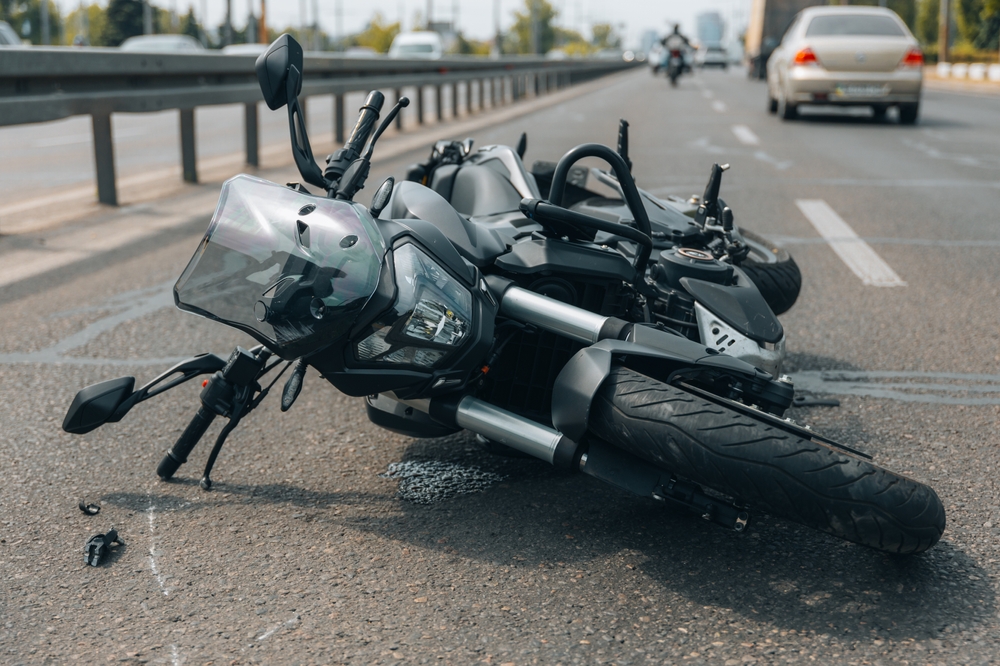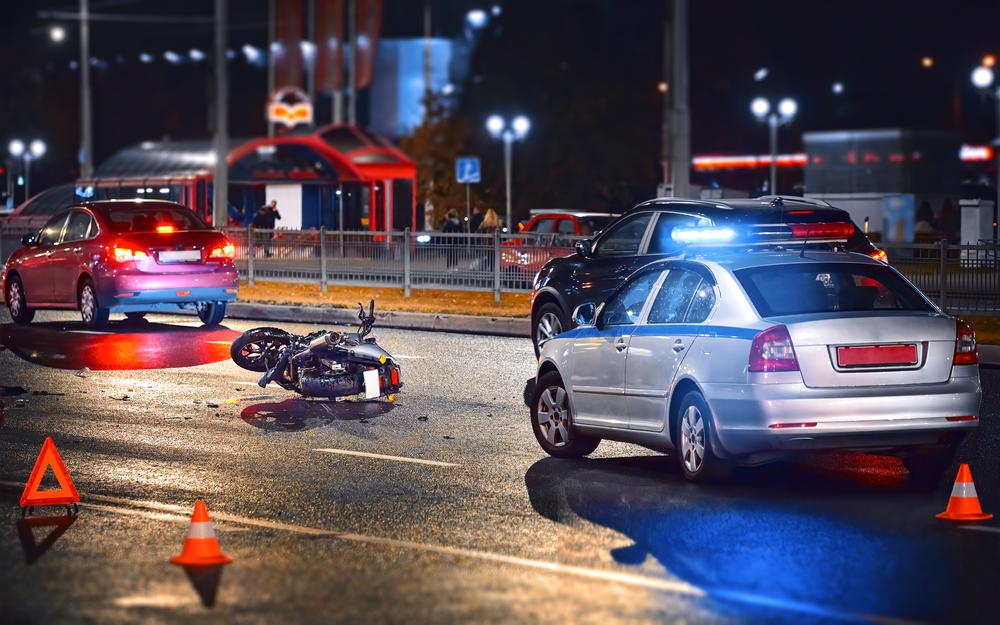What to Do After a Motorcycle Accident in New Orleans
New Orleans Motorcycle Accident Lawyers
Riding a motorcycle through the vibrant streets of New Orleans can be exhilarating—the city’s dynamic culture, historic neighborhoods, and scenic byways all add to the allure. However, the very qualities that make New Orleans charming can also present unique challenges for motorcyclists. From uneven roads to congested traffic near popular attractions like the French Quarter, riders must remain vigilant at all times. Unfortunately, even the most cautious motorcyclist can be involved in an accident.
If you’ve recently experienced a motorcycle accident in Louisiana, you’re likely dealing with not only physical injuries but also stress, uncertainty, and a long list of “what ifs.” This comprehensive guide is here to help you navigate what to do after a motorcycle accident, protect your rights, and understand the legal steps involved in filing a motorcycle accident claim in New Orleans. We’ll also explain how a dedicated motorcycle accident lawyer in New Orleans can help ensure you receive fair compensation.
Louisiana Motorcycle Laws Every Rider Should Know
Before diving into the steps to take after a crash, it’s crucial to understand some of the state-specific rules that affect New Orleans motorcyclists. Louisiana has its own motorcycle regulations that can influence how your claim proceeds.
Louisiana Helmet Laws and Their Impact on Motorcycle Claims
Louisiana law requires all motorcycle riders to wear a helmet. Failing to wear one can potentially reduce your compensation if you’re injured, as insurance companies might argue that not wearing a helmet contributed to your injuries.
Licensing and Training
A standard driver’s license is not enough to legally operate a motorcycle in Louisiana. Riders must apply for a motorcycle endorsement and, in many cases, complete a motorcycle safety course. The Louisiana State Police Motorcycle Safety Program offers classes that teach essential riding skills and safety precautions.
Insurance Requirements
Louisiana law mandates certain minimum liability insurance coverage for motorcyclists. Although these minimums may satisfy legal requirements, they often fall short of covering serious or catastrophic injuries. Consider purchasing additional coverage such as uninsured/underinsured motorist (UM/UIM) protection to safeguard against accidents with drivers who carry inadequate insurance.
Immediate Steps to Take After a Motorcycle Accident
The moments after a motorcycle accident can feel disorienting, but your actions in these initial stages play a pivotal role in protecting your health and legal rights. Here’s what to do after a motorcycle accident in New Orleans:
1. Check Yourself and Others for Injuries
Your priority is to ensure everyone’s safety. If you can move, carefully assess your condition and that of others involved. Even if you feel fine, internal injuries are common in motorcycle accidents. Call 911 immediately if anyone is severely hurt.
2. Contact Law Enforcement
Under Louisiana law, you are required to report any motor vehicle accident involving injury, death, or property damage over $500 to the local police or the Louisiana State Police. In New Orleans, calling 911 will connect you to the appropriate authority who can document the accident and create an official report. This report is often a crucial piece of evidence in a motorcycle accident claim.
3. Move to a Safe Location
Traffic can be busy in New Orleans, especially near popular hotspots. If your injuries permit, move your bike and yourself to a safer area—such as the shoulder of the road—to avoid further collisions.
4. Gather Evidence
Documentation is critical. Take photos of the accident scene, your motorcycle, the other vehicle(s) involved, and any road or weather conditions that might have contributed to the crash. Exchange insurance information with other parties and collect contact information from eyewitnesses. Record the location, date, and time of the accident. If possible, jot down any immediate impressions or recollections about how the accident occurred.
Tip: Since New Orleans is prone to sudden rainfall and humidity, weather conditions could be a contributing factor. Be sure to note or photograph any slippery roads, potholes, or debris that might have affected your ability to stop or maneuver.
5. Seek Medical Attention
Even if you believe your injuries are minor, see a medical professional promptly. Some injuries, particularly head or spinal injuries, may not manifest immediate symptoms. A medical evaluation also creates an official record, linking your injuries to the accident — an essential factor in a motorcycle accident claim.
6. Notify Your Insurance Company
Report the accident to your insurance company, but be cautious about what you say. Provide the facts, but avoid making statements accepting blame or downplaying your injuries. Insurance adjusters may try to use your own words against you later.
7. Protect Your Legal Rights
Finally, contact a New Orleans motorcycle accident lawyer as soon as possible. An experienced attorney can guide you through the complexities of motorcycle accident steps, including filing a claim, negotiating with insurance companies, and advocating for maximum compensation.

Common Causes of Motorcycle Accidents in New Orleans
Understanding the prevalent causes of motorcycle accidents in New Orleans can help you and your attorney identify liability. Some common factors include:
- Distracted Driving: Tourists and locals alike may be distracted by scenic views, phone use, or in-car infotainment systems.
- Driving Under the Influence: New Orleans is known for its vibrant nightlife. Unfortunately, drunk driving remains a serious risk.
- Poor Road Conditions: Potholes, uneven pavement, and slippery streets—particularly around the older parts of the city—can contribute to accidents.
- Inclement Weather: Louisiana’s tropical climate often brings sudden downpours, creating slick roads and reduced visibility.
Lane Splitting or Weaving: Though not explicitly legalized or regulated in Louisiana, lane splitting is risky and can lead to severe accidents.
Why Hire a Motorcycle Accident Lawyer in New Orleans?
1. Local Knowledge of Laws and Courts
A motorcycle accident lawyer in New Orleans is familiar with Louisiana’s legal landscape, local court procedures, and the intricacies of insurance policies. This local insight can significantly strengthen your case.
2. Evidence Collection and Investigation
Attorneys can enlist accident reconstruction experts, interview witnesses, and examine police reports to build a strong claim. They understand what evidence is most persuasive in front of a judge or jury.
3. Negotiating with Insurance Companies
Insurance companies often try to minimize payouts. By hiring a New Orleans motorcycle accident lawyer, you gain a skilled negotiator who can counter lowball offers and, if necessary, take your case to trial.
4. Maximizing Your Compensation
Serious injuries can mean steep medical bills, lost wages, and long-term rehabilitation. A local attorney will push for compensation that reflects not just current expenses but also future damages, pain and suffering, and any lost earning capacity.
How Motorcycle Accident Claims Work in Louisiana
Filing a Claim
After the accident, your attorney will help you file a motorcycle accident claim with the negligent party’s insurance company. The goal is to establish fault and secure a settlement that covers the full scope of your losses.
Comparative Fault
Louisiana follows a “pure comparative negligence” rule, meaning you can recover damages even if you were partially at fault for the accident. However, your compensation is reduced by the percentage of your responsibility. For example, if you are found 20% responsible, you can only recover 80% of the total damages.
Statute of Limitations
In Louisiana, you typically have one year from the date of the accident to file a personal injury lawsuit. Missing this deadline can bar you from recovering any compensation. Because of this tight timeline, contacting a motorcycle accident lawyer New Orleans early is critical.
When to Contact a New Orleans Motorcycle Accident Lawyer
If you’ve been in a motorcycle accident—no matter how minor it may seem—it’s wise to consult a local attorney. We can assess the unique aspects of your case, clarify your legal options, and handle communications with insurance companies. Pursuing fair compensation requires thorough investigation and negotiation, processes that can be daunting if you’re also focusing on recovery.
Ricci Partners is dedicated to ensuring that injured motorcyclists in New Orleans understand their legal rights and have a fighting chance at fair compensation. Our experience with motorcycle accident claims spans decades, and we’re intimately familiar with local laws, insurance tactics, and the challenges riders face.

Ready to Move Forward? We Can Help
The Don’t let mounting medical bills, lost wages, and the complexities of Louisiana law overwhelm you. A New Orleans motorcycle accident lawyer can advocate on your behalf, guiding you through every stage of the legal process—from filing the insurance claim to negotiating a settlement or taking your case to court.
By taking the right motorcycle accident steps—including contacting law enforcement, documenting the scene, and consulting with an attorney—you can safeguard your physical, financial, and legal well-being. Let Ricci Partners handle the complex legal work, so you can focus on healing and getting back on the road.
